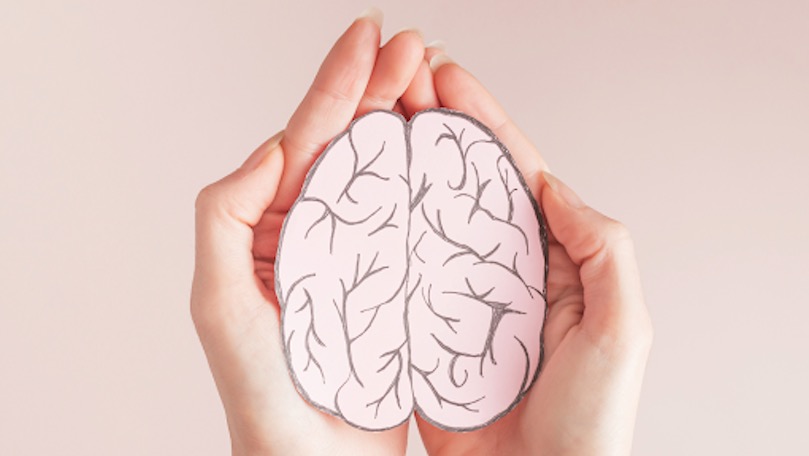Does BetterHelp Actually Work for Mental Health Treatment?

Written by Tom White in partnership with Mediaite.
When considering online therapy, understanding the effectiveness and legitimacy of the platform is crucial. BetterHelp has helped over 5 million people across more than 100 countries access professional therapy support, but the real question is what outcomes clients achieve and how the platform maintains quality standards.
The platform’s approach combines licensed mental health professionals with technology-enabled accessibility, creating a model that has generated substantial outcome data. Examining the evidence behind BetterHelp’s effectiveness, the qualifications of its professionals, and the results achieved by clients provides insight into how online therapy works in practice.
BetterHelp’s Legitimacy: Credentials, Licensing, and Professional Standards
BetterHelp is real therapy with real licensed therapists. The platform maintains a network of over 30,000 licensed mental health professionals worldwide, each of whom undergoes rigorous vetting of their credentials and professional history. This extensive network represents one of the largest collections of licensed mental health professionals available through any single platform.
Every therapist must maintain proper state licensure and demonstrate at least 1,000 hours of practical experience before joining the platform. The platform’s counselors include a range of licensed practitioners: psychologists with doctoral degrees, licensed marriage and family therapists, licensed clinical social workers, licensed professional counselors, and licensed mental health counselors.
BetterHelp’s screening process for therapists is comprehensive and stringent. Each professional must hold a valid license to practice in their state, having completed all necessary education, exams, training, and practice requirements set by their state’s professional board. Additionally, all therapists must pass a thorough background check before joining the platform.
The rigorous vetting ensures that all therapists working with BetterHelp meet the same professional standards as those practicing in traditional settings. Because of these strict requirements, only about one-third of therapists who apply to work with BetterHelp are ultimately accepted to the platform.
The platform maintains continuous quality assurance through regular verification and comprehensive monitoring of service delivery metrics. Multi-dimensional client feedback systems and proactive quality measures using hundreds of monitored signals help maintain consistent standards. BetterHelp also employs comprehensive human review processes and dedicated teams overseeing account safety and platform trust.
Clinical Evidence: What the Data Shows About Effectiveness
BetterHelp’s effectiveness is supported by the platform’s own outcome data collected from millions of client interactions. The platform’s approach to treatment utilizes research-informed therapeutic techniques delivered by licensed professionals.
The platform’s approach to treatment utilizes research-informed therapeutic techniques delivered by licensed professionals. BetterHelp therapists employ various evidence-based approaches, including cognitive behavioral therapy, which helps clients identify and modify problematic thought patterns and behaviors that may contribute to mental health challenges.
The flexibility of online therapy through BetterHelp can actually enhance treatment effectiveness for some individuals. Those experiencing social anxiety, for instance, might find it easier to begin therapy through messaging before transitioning to video sessions as they build confidence and rapport with their therapist.
Client Outcomes and Success Metrics from 2024
BetterHelp’s 2024 data, laid out in the State of Stigma report, provides compelling evidence of the platform’s clinical effectiveness. 72% of clients experienced symptom reduction in their first 12 weeks of therapy, with 69% achieving reliable improvement and 62% reaching symptom remission during their treatment.
These outcomes are tracked through standardized assessments like the PHQ-9 and GAD-7, administered every 45 days to ensure consistent progress monitoring. This systematic approach to measuring progress helps ensure that clients receive effective support throughout their therapeutic journey and provides objective data on treatment effectiveness.
The platform’s success extends beyond symptom reduction to overall client satisfaction and engagement. Live therapy sessions received an average rating of 4.9 out of 5 based on more than 1.7 million client ratings in 2024. Additionally, 82% of clients reported they would recommend their therapist to others, indicating strong therapeutic relationships and positive experiences.
High engagement with platform resources demonstrates clients’ active participation in their therapeutic journey. In 2024, 69% of users actively engaged with additional self-care features, including therapeutic worksheets, goal tracking, personal journaling, support groups, and educational classes. This engagement suggests that clients find value in the comprehensive approach to mental health support.
Quality Assurance and Safety Measures
BetterHelp maintains quality through continuous monitoring of service delivery metrics and multi-dimensional client feedback systems. The platform employs hundreds of monitored signals and comprehensive human review processes to ensure consistent service delivery, while dedicated teams oversee account safety and platform trust.
The platform’s commitment to quality extends beyond individual care. BetterHelp supports its therapists with access to extensive clinical resources, including worksheets, assessments, and planning tools. These resources help therapists provide effective, evidence-based treatment while staying current with best practices in mental health care.
The platform encourages ongoing professional development, ensuring that therapists continue to grow and refine their skills. This commitment to professional excellence benefits clients, who receive care informed by current research and clinical best practices.
BetterHelp’s quality assurance includes proactive measures to ensure client safety and appropriate care. The platform monitors interactions and outcomes to identify any concerns and takes appropriate action when necessary. This systematic approach to quality management helps maintain high standards across the large network of therapists and clients.
Licensed Professional Network: Who You’re Actually Working With
BetterHelp’s network includes licensed professionals practicing across 50 states, providing unprecedented access to mental health support for people from diverse backgrounds and locations. The diversity of credentials allows BetterHelp to match clients with professionals who specialize in their particular concerns, whether that’s anxiety, depression, relationship issues, trauma, or other mental health challenges.
All therapists working with BetterHelp are licensed mental health professionals with valid credentials in their state of practice. Each has completed the necessary education, exams, training, and practice requirements set by their state’s professional board and possesses a minimum of 1,000 hours of hands-on clinical experience.
The platform’s selective approach to therapist acceptance ensures that clients work with highly qualified professionals. The rigorous vetting process, combined with ongoing quality monitoring, helps maintain the high standards that contribute to BetterHelp’s effectiveness and client satisfaction.
Understanding Online Mental Health Care Effectiveness
The effectiveness of online mental health care through platforms like BetterHelp stems from several key factors that address common barriers to accessing and maintaining therapeutic support. The platform’s multi-modal communication approach allows clients to engage in ways that feel most comfortable and conducive to open communication.
BetterHelp’s matching system achieved a 93% success rate in fulfilling client preferences during 2024, and new members can be typically connected with a therapist in as little as 12 hours. This rapid access to care and high-quality matching contributes significantly to treatment effectiveness by ensuring clients can begin their therapeutic journey quickly with a compatible professional.
The platform’s comprehensive approach extends beyond individual therapy sessions to include between-session support, educational resources, and group therapy options. This multi-layered support system creates opportunities for continuous engagement with mental health care, which can enhance treatment outcomes.
The flexibility of BetterHelp’s approach allows therapy to adapt to each person’s unique situation and preferences. This adaptability has been crucial in reaching diverse populations, with 40% of new members in 2024 experiencing therapy for the first time in their lives, suggesting that the platform successfully engages individuals who might not otherwise access mental health support.
Getting Started: What to Expect from BetterHelp
Beginning therapy with BetterHelp involves a comprehensive intake process designed to ensure appropriate matching and effective treatment. The matching process begins with an initial client questionnaire covering therapeutic needs and preferences, which helps the platform identify therapists who align with the client’s goals and preferences.
Clients can expect to engage with their therapists through multiple communication channels, including video sessions, phone calls, live chat, and asynchronous messaging. This flexibility allows the therapeutic relationship to develop in ways that best suit each client’s comfort level and communication preferences.
The platform provides ongoing support through various resources and tools designed to enhance the therapeutic experience. Clients have access to therapeutic worksheets, goal tracking features, personal journaling tools, and educational resources that complement their work with their assigned therapist.
BetterHelp’s user-friendly interface makes it easy to schedule sessions, communicate with therapists, and access platform resources. The straightforward approach to scheduling and communication helps eliminate technical barriers that might interfere with therapeutic engagement.
Evidence-Based Assessment of BetterHelp’s Approach
The evidence supporting BetterHelp’s effectiveness comes from multiple sources, including peer-reviewed research on online therapy, the platform’s own outcome data, and client satisfaction metrics. The convergence of this evidence suggests that BetterHelp provides legitimate, effective mental health support for a wide range of individuals and concerns.
The platform’s success in serving over 5 million people worldwide demonstrates its ability to scale effective mental health support while maintaining quality and positive outcomes. The combination of licensed professionals, evidence-based practices, and technology-enabled accessibility creates a model that effectively addresses many traditional barriers to mental health care.
BetterHelp’s commitment to continuous improvement and quality assurance, combined with its substantial outcome data, provides strong evidence of its legitimacy and effectiveness as a mental health treatment option. The platform’s approach represents a significant advancement in making professional mental health support more accessible, convenient, and effective for diverse populations seeking help.
The data from 2024 demonstrates that BetterHelp successfully combines clinical effectiveness with client satisfaction, creating a sustainable model for online mental health care that works for millions of users worldwide. This evidence-based approach to digital therapy suggests that platforms like BetterHelp play an important role in expanding access to quality mental health care while maintaining the professional standards and therapeutic outcomes that define effective treatment.
Members of the editorial and news staff of Mediaite were not involved in the creation of this content.
New: The Mediaite One-Sheet "Newsletter of Newsletters"
Your daily summary and analysis of what the many, many media newsletters are saying and reporting. Subscribe now!






Comments
↓ Scroll down for comments ↓